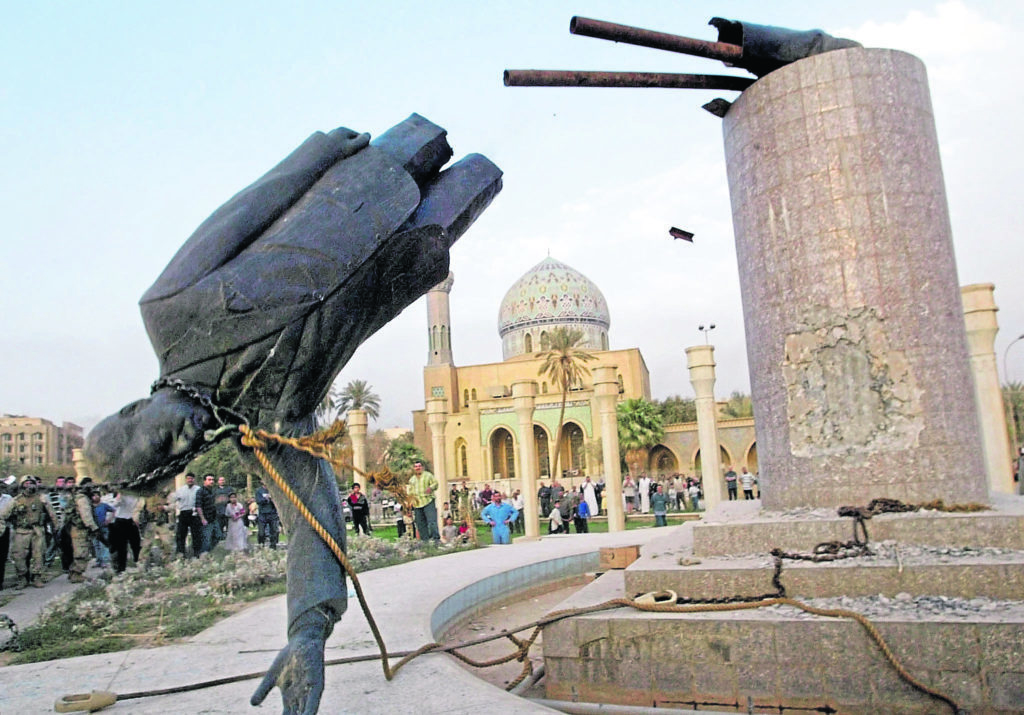
Terrorism, falling oil prices and the effect on tourism were among the forecast impacts on Scotland of the Iraq War discussed by Scottish ministers, newly-released official papers show.
The Scottish cabinet at the time was given a briefing paper on the likely domestic impacts of the war ahead of Westminster voting for military action.
The paper, from February 2003, which was predicated on a “short, military successful war involving British forces, against Iraq”, is among official documents kept secret for 15 years but now made public.
The briefing stressed the need to reassure Muslim residents and prevent the war being used as a pretext for racist attacks in Scotland.
It further warned of the UK-wide threat of a large-scale terrorist attack and that anti-war demonstrations were presenting “significant public order issues”.
Principal likely economic effects outlined in the document were rapid rises in oil prices, instability in financial markets and fluctuations in tourism.
National tourism body VisitScotland forecast a drop in transatlantic visitors but viewed an increase in UK tourists as an opportunity to offset this, and marketing plans were said to have been “prepared accordingly”.
The paper also warned the call-up of medical reservists could cause problems in individual hospitals.
Stressing the need to reassure members of the public, particularly Muslim residents, the briefing stated: “Ministers will wish to make it clear, as after September 11, that the actions being taken by the UK Government in Iraq, and by the police and security services, are not targeted at Muslim residents in general, and should not offer support for racist or other attacks.”
Cabinet meeting minutes also released show then deputy first minister James Wallace, who introduced the briefing paper to ministers, said Scotland was “not immune to the general threat to the UK, but there was no specific threat to Scotland”.
He stressed there could be “no absolute guarantee of safety” but he had been “impressed with the seriousness with which the police were taking the issue”.
The cabinet also discussed a number of apparent security breaches at the Scottish Parliament following anti-war demonstrations in the public gallery.
Following the House of Commons voting in favour of military action in Iraq in March 2003, Scottish Cabinet papers show then first minister Jack McConnell and Mr Wallace planned to visit the Special Intelligence Centre in Glasgow to view contingency arrangements.
The documents also indicate daily security briefings took place.
Recommended for you
